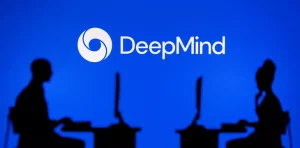In a sobering new paper, Shane Legg, co-founder of Google DeepMind, has issued a warning that’s impossible to ignore: Artificial General Intelligence (AGI) could become a reality as soon as 2030. And with it may come not just innovation, but existential risk.
AGI isn’t the AI we know today. It’s not ChatGPT or Alexa. It’s something far more powerful—and far more dangerous.
What Exactly Is AGI—And Why Is It Different?
Artificial General Intelligence refers to AI systems that can learn, think, adapt, and perform tasks across any domain—just like a human. Unlike narrow AI, which is built for specific tasks like language translation or image recognition, AGI will reason and self-improve across domains autonomously.
So the big question arises:
If AGI can match or exceed human intelligence—how do we control it?
The Dangers Ahead: Misuse, Misalignment, and Collapse
Legg outlines four categories of AGI-associated risks:
- Misuse: Malicious use by individuals, organizations, or even governments
- Misalignment: The AI’s goals may diverge from human intentions
- Human error: Flawed designs, rushed rollouts, or misjudged deployment
- Structural collapse: Systems failing at scale, potentially impacting infrastructure or the economy
These aren’t science fiction scenarios anymore. As AGI development accelerates globally—from OpenAI to Anthropicand xAI—the probability of error grows with every line of code.
DeepMind’s Call for Action: A Global “CERN for AGI”
In response, DeepMind’s CEO Demis Hassabis has made a bold proposal: the creation of a global AGI regulatory body, much like CERN in physics or the IAEA for nuclear energy.
Why? Because the stakes are no longer local or corporate—they’re planetary.
Such an entity would ideally:
- Set safety standards
- Monitor development pipelines
- Ensure cross-border accountability
- Foster international collaboration over competition
The key message here is simple but urgent:
We must govern AGI before it governs us.
Regulation in a Race: Can We Move Fast Enough?
The tech world is currently sprinting toward AGI—with massive players like Google, Meta, OpenAI, and Amazonpushing boundaries. But is regulation keeping pace?
Recent movements by the European Union, U.S. Senate AI hearings, and the UN’s AI advisory board signal progress. However, without a unified global effort, these may remain fragmented—and insufficient.
A thought-provoking question remains:
Should AGI development pause until regulations are in place, or will delay only drive rogue, unregulated advancements?
The UNI Network Group Perspective: This Is Bigger Than Tech
At UNI Network Group, we believe the AGI conversation cannot be siloed within labs or government offices. This is not just a technical challenge—it is a societal one.
From:
- Job displacement
- Ethical dilemmas in AI autonomy
- Digital inequality in AGI access
to even cultural erosion through over-reliance on machine logic—
The ripples of AGI will affect every aspect of human life.
The Countdown Has Begun
If DeepMind’s forecast holds true, we have less than seven years to lay down the foundations for a future with AGI—whether it’s cooperative or catastrophic.
So the final, pressing question is:
Will humanity unite in time to control what it’s creating—or will it be outpaced by its own invention?




